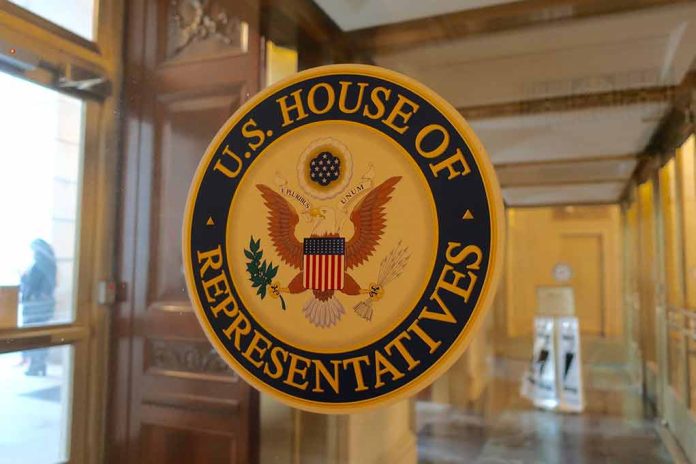
Rep. Jasmine Crockett’s controversial remarks on racial oppression spark fierce debate, challenging historical narratives and political responsibility.
At a Glance
- Rep. Jasmine Crockett claimed Black people are oppressed by “the white man” and that white men have never faced oppression
- Critics argue her statements oversimplify history and ignore various forms of oppression faced by different groups
- The controversy has ignited discussions on political figures’ responsibility in addressing racial history
- Crockett’s remarks have been labeled as potentially racist and divisive by some commentators
- The incident highlights ongoing challenges in addressing racial dynamics in America
Crockett’s Contentious Claims
Representative Jasmine Crockett, a Democrat from Texas, has found herself at the center of a heated controversy following her recent remarks on racial oppression in the United States. Crockett asserted that Black people have been oppressed by “the white man” and boldly claimed that “the white men” have never experienced oppression themselves. These statements have ignited a firestorm of criticism and debate across political circles and social media platforms.
Critics argue that Crockett’s comments demonstrate a concerning lack of historical knowledge and a simplistic view of complex racial dynamics. The controversy has raised questions about the responsibility of elected officials to engage with racial history in a nuanced and accurate manner.
Historical Inaccuracies and Oversimplification
Detractors of Crockett’s statements point to numerous historical instances that contradict her claim about white people never facing oppression. Examples cited include the Holocaust, which saw the systematic persecution and genocide of millions of European Jews, and current events such as the ongoing conflict in Armenia. These references underscore the complexity of historical oppression that transcends simplistic racial categorizations.
Furthermore, critics argue that Crockett’s remarks ignore the diverse experiences of white immigrants throughout American history. Many European immigrants faced significant discrimination and hardship upon arrival in the United States, challenging the notion that all white people arrived voluntarily and free from oppression.
Accusations of Racism and Political Consequences
Some commentators have gone as far as to label Crockett’s statements as a form of racism, arguing that her generalizations about white people are both inaccurate and harmful. Concerns have been raised about the potential impact of such divisive rhetoric on racial relations and political discourse in the country.
Rep. Jasmine Crockett goes on a full racist rant, saying white people can't use the word "oppression" because they've never been oppressed. https://t.co/Orlm3h5oXQ
— Media Research Center (@theMRC) November 21, 2024
The controversy has also sparked discussions about Crockett’s political future, with some questioning her fitness for office and expressing concern over her potential reelection. Critics argue that elected officials should be held to a higher standard when discussing sensitive historical and racial issues.
Broader Implications for Political Discourse
This incident highlights the ongoing challenges in addressing racial dynamics in America and the importance of inclusive historical acknowledgment. It underscores the need for political figures to approach discussions of race and oppression with care, nuance, and a comprehensive understanding of historical contexts.
As the controversy continues to unfold, it serves as a reminder of the power of words in shaping public opinion and the responsibility that comes with political leadership. The debate surrounding Crockett’s remarks reflects the broader national conversation on race, history, and the path forward for a diverse and complex society.
Sources:
Watch: Democrat congresswoman goes on anti-white tirade that needs to be seen to be believed














